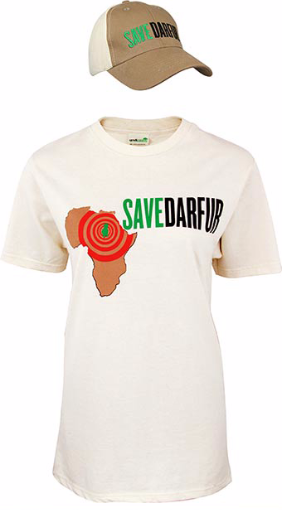Talking to a journalist in Nairobi this weekend, he mentioned something that I thought was as unnerving as it was interesting. The journalist lamented at the fact that it seemed the world had gotten so tired of Darfur that the news of soldiers raping at least 221 women and girls in the village of Tabit last October hardly caused a ripple. The first allegations of the 36-hour rape ordeal came in November when Radio Dabanga (The Hague) initially reported on the crimes. In December, the ICC prosecutor decided to shelve the war crimes probe after almost five years of stagnation by the world court, stating she needed more support to address Sudan’s lack of cooperation, and that the rape of the 200 women and girls in the village “should shock [the] council into action.” Sudanese security forces killed approximately 200 protesters in 2014 and the Sudanese state has been so confident that nothing would happen to it, it created a new force, the Rapid Support Forces, which was accused of having burned 3,000 villages in 2014.
We have come a long way from events that sought to raise awareness such as ‘Rock for Darfur’ (which according to Voice of America had 22 concert in 2006 alone), a long way from buying, and proudly donning, t-shirts  with ‘Save Darfur’ emblazoned on them. Syria, Iraq, Liberia, South Sudan, and Central Africa Republic have overtaken Darfur in the attention sweepstakes in the news. In previous posts I have talked about Compassion Fatigue and the four horsemen of the apocalypse whenever atrocities were covered in the media. However, when is it ok to say enough is enough? When do we, as global citizens, stop shaking our heads and going “tsk tsk, it is so sad what is happening in that country”? These are questions I have asked myself over the past few years. As a graduate student, I have often wondered if my keeping an eye on Darfur is influenced by the fact that my research is in the region. Would it matter as much if my research was on, say, farming practices in Africa? I would like to think it would, if for no reason other than the fact that my country (Kenya) shares a border with South Sudan. I would like to think that whenever I opened the local daily at a coffee shop, or on my way to work in the morning, I would read the news about Darfur and seek out like-minded individuals to try and help in some way, shape or form. What form of help this would be I’m not sure as of yet. So to the question, what have I done for Darfur lately? My honest answer is not as much as I would have liked to do. As Darfur has morphed into a conflict occurring in the shadows (a dreadful prospect) my sense of hopelessness has also increased. What will your answer be?
with ‘Save Darfur’ emblazoned on them. Syria, Iraq, Liberia, South Sudan, and Central Africa Republic have overtaken Darfur in the attention sweepstakes in the news. In previous posts I have talked about Compassion Fatigue and the four horsemen of the apocalypse whenever atrocities were covered in the media. However, when is it ok to say enough is enough? When do we, as global citizens, stop shaking our heads and going “tsk tsk, it is so sad what is happening in that country”? These are questions I have asked myself over the past few years. As a graduate student, I have often wondered if my keeping an eye on Darfur is influenced by the fact that my research is in the region. Would it matter as much if my research was on, say, farming practices in Africa? I would like to think it would, if for no reason other than the fact that my country (Kenya) shares a border with South Sudan. I would like to think that whenever I opened the local daily at a coffee shop, or on my way to work in the morning, I would read the news about Darfur and seek out like-minded individuals to try and help in some way, shape or form. What form of help this would be I’m not sure as of yet. So to the question, what have I done for Darfur lately? My honest answer is not as much as I would have liked to do. As Darfur has morphed into a conflict occurring in the shadows (a dreadful prospect) my sense of hopelessness has also increased. What will your answer be?
Wahutu Siguru is the 2013 Badzin Fellow in Holocaust and Genocide Studies and PhD candidate in the Sociology department at the University of Minnesota. Siguru’s research interests are in the Sociology of Media, Genocide, Mass Violence and Atrocities (specifically on issues of representation of conflicts in Africa such as Darfur and Rwanda), Collective Memory, and perhaps somewhat tangentially Democracy and Development in Africa.

Comments